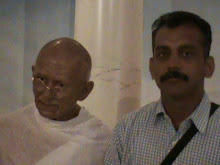India created history by
successfully stationing (placing) it’s Mangalyaan Spacecraft in the orbit of
Mars planet on 24.09.2014. The people of India congratulated wholeheartedly the
ISRO scientists for this remarkable first attempt technological mission achievement.
Mars Mission:
The average distance between the two
planets Earth and Mars is 225 million km. The
research on planet Mars is being conducted by various countries including USA,
Russia, India and China. The overall objective
of all research on Mars is to study what will be needed to make it habitable.
Mars Orbiter Mission
The Mangalyaan mission concept
began with a feasibility study in 2010. India
planned to send a spacecraft called Mangalyaan to Mars to conduct research on the
planet. On 05.11.2013, India through its launch
vehicle PSLV-C25 rocket successfully launched the Mangalyaan Spacecraft from
Satish Dhawan Space Centre, Sriharikota. The Mangalyaan also called Mars
Orbiter Mission (MOM) is a 1350 kg weighed satellite that can reveal
interesting information about the planet Mars and induce us to develop new technology.
As per the plan, Mangalyaan moved
away from the gravitational force of the Earth on 01.12.2013 and travelled
towards Mars. From time to time the direction of the Mangalyaan was changed in
controlled manner so as to reach the target spot. The Mangalyaan thus travelled into the orbit
of Mars and moved into the gravitational force of the planet Mars on
22.09.2014. The work related to stationing the Mangalyaan started on
23.09.2014. A Liquid Apogee Meter was
operated to reduce the speed of the spacecraft step by step. In other words, the speed of the spacecraft
was reduced from 22.1 km/second to 4.4 km/second. The Mangalyaan was thus successfully
stationed in the orbit of Mars at 0754 Hrs on 24.09.2014. All commands for this purpose were given from
the computer positioned within the Spacecraft.
The spacecraft was inserted into an orbit with a nearest distance of 423
km (262 miles) to the Red Planet Mars and a farthest distance of 80,000 km (50,000 miles).
Commendable Achievement of ISRO
The commendable achievement of
ISRO is not a small one in any sense.
First the spacecraft is put in the orbit of earth and allowed to go one
for some time. Then, the spacecraft is
to be let loose to slip into deeper space and almost to on its own till it reaches
Mars. When it is to enter the orbit of
Mars, suddenly it needs to be woken up and even given instructions to fire more
than a dozen engines almost simultaneously or in some specific sequence. Even the signals take almost twenty minutes
to reach the spacecraft from the earth stations involved in controlling and
monitoring the spacecraft for the last almost one year. Another twenty minutes are also needed to get
the feedback from the spacecraft to know how it is responding or to locate any
fault. The very fact that everything
happened with a clockwork precision clearly indicates the level of coordination
among the ISRO scientist.
What Mangalyaan will do for us?
The Mangalyaan carries five
important instruments. These include imagers in optical and infrared, a
photometer, an instrument to study the impact of neutral material around Mars
and a methane sensor. The imagers will allow us to image the surface of Mars
and to determine its surface and atmospheric light reflectivity. The neutral material detector will help us
understand how the solar radiation falling on Mars ablates the atmospheric
material. The methane sensor will check the tentative detection of
methane on Mars and the location from where the methane is coming. Methane gas
is highly reactive and it reacts and changes form quickly. It can only be
sustained by continuing chemical reactions or life forms – on earth the
bacteria from guts of cows are the most prolific producers of methane which is
also a greenhouse gas.
Mangalyaan or Mars Orbiter
Mission was executed in a shoestring budget of Rs.450 crore. The Mangalyaan will continue to send photos
to the Earth. The expected lifespan of
the spacecraft is six months, after which it will run out of fuel and not be
able to maintain its orbit. India joins the US, Russia and Europe in
successfully sending probes to orbit or land on Mars. The mission also makes
India the first country in Asia to reach Mars.
Heartiest Congratulations to India.
____________

No comments:
Post a Comment